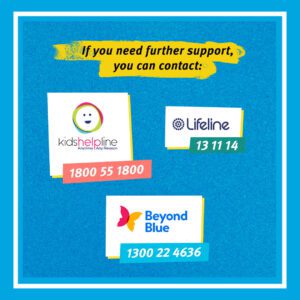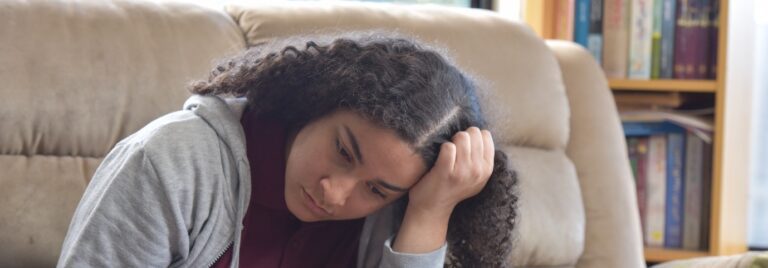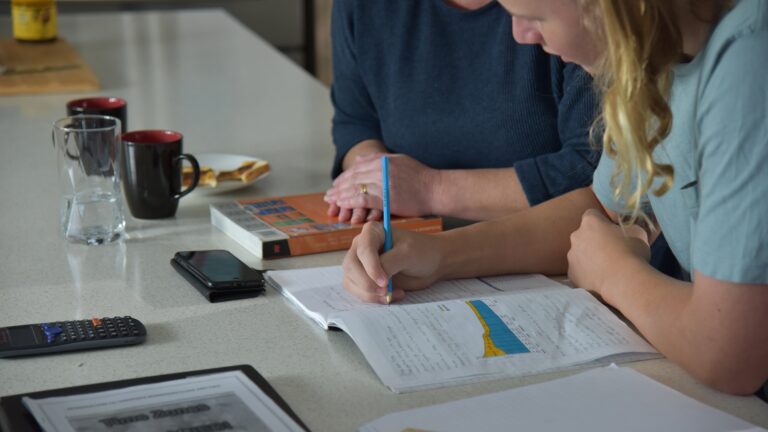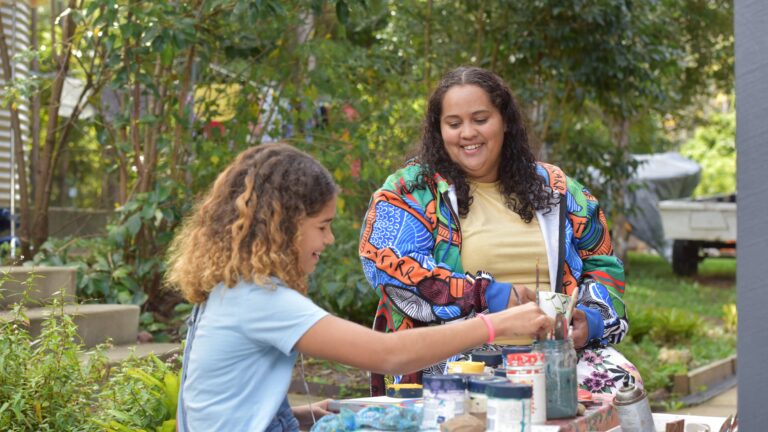Key Points
- Teenage brains are still developing.
- The part of the brain that controls how teens react to situations is the last part to develop.
- It’s normal for teenagers to make poor choices.
- Let them know you are there for them if they make a mistake.
- If your teen is doing something that could harm themselves or others, talk to a professional.
Even when young people understand ‘right’ and ‘wrong’ behaviour, they can still make poor choices if they feel pressured, stressed or are seeking attention from their friends. Teens are yearning for more independence, trying to work out who they are, and wanting to fit in with their friends. And their brains are still developing. So it’s no surprise that they sometimes make bad choices. When your teen makes a mistake, that’s when they need you the most.
First, check they are safe
If you believe your teen is a risk, or your teen mentions there is a threat to their safety or someone else’s, it is important you deal with this immediately. Keep calm, ask questions to assess the safety risk, and then get the help you need, without judging or blaming your teen. In this situation, keeping your teen close and letting them know you are there to help them really matters. It’s important your teen sees you dealing with this situation so they understand that protecting their safety and the safety of others is essential.

They can always talk to you
Let your teen know that whatever is going on– whatever mistake they make – they can talk to you and you will be there for them. If your teen is afraid of your reaction, they may not tell you when they make a bad choice. If you have involved your teen in working out rules and consequences, they will already know what to expect. That realisation may help your teen open up about why they made their mistake and be willing to work with you to deal with the consequences of their mistake. You may also discover your teen is doing things you hadn’t expected and have not talked about. If this happens, and even if you feel shocked or angry about your teen’s behaviour, try and stay calm so you can connect with your teen and talk things through. You may need to consider new rules and consequences as your teen matures and is exposed to situations that may hold greater risk for them.
Show compassion and understanding
Sometimes, being compassionate and understanding when your teen makes a bad choice can make all the difference. Lecturing a teen could make them pull away from you when what you want is to connect with them. Listen to what your teen has to say and ask questions that might help them talk about how they are feeling and what they need. Gentle or non-confronting questions, such as, ‘What do you think needs to happen right now?’, or ‘Tell me how I can support you right now’ can help keep the lines of communication open.
A mistake is a teaching opportunity
When your teen makes a mistake try to look at it as a teaching opportunity. It’s also a chance to learn about your teen. If you focus too much on punishment and not enough on understanding them, your teen might retreat into themselves and avoid talking to you. This may limit the opportunities for them to learn from their mistakes. In this situation, your aim should be to help your teen to work out where their choices went wrong.
Help them face the consequences
If your teen has made a poor choice, there are likely to be consequences. Help your teen to understand the connection between the choice they made and the resulting consequence. Use consequences to teach your teen to make better choices in the future, not to punish them for the mistake they’ve already made.
Connect with trusted adults
Reach out to your teen’s trusted adults. A trusted adult might be someone in your family or circle of friends or a teacher at school who really ‘gets’ your child. A trusted adult can support and reassure your teen and help them think about their poor choice and what they can learn from it.
Nurture their spark
Your teen’s spark – that thing they enjoy and want to spend time on – can help them regain their confidence after they’ve made a poor choice. It can help build their resilience and confidence when they are going through a tough time.
If your teen makes a poor choice at school
If your teen makes a poor choice at school, the school might contact you to discuss the consequences. In most situations, the consequence will reflect what is in the school’s Student Code of Conduct which you and your teen are likely to be familiar with. If your teen’s behaviour results in a consequence you consider to be unfair, or they are subject to a serious disciplinary consequence, you can talk to the school. If you are unhappy with the outcome after you’ve talked to the school, you can discuss it with your local regional office or, in some circumstances, lodge a formal appeal. Where appropriate, the regional office may work with you and the school to review what has happened.
Seek help if your child needs it
While it’s normal for teens to make poor choices, if your teen is doing something that could harm themselves or others and/or is illegal, consider talking to a professional to seek help. There may be underlying issues relating to anxiety, drugs or alcohol. If you are concerned about your child’s mental health and wellbeing, please contact Beyond Blue, eheadspace, Lifeline or KidsHelpline
Last Updated: 22 February 2024





